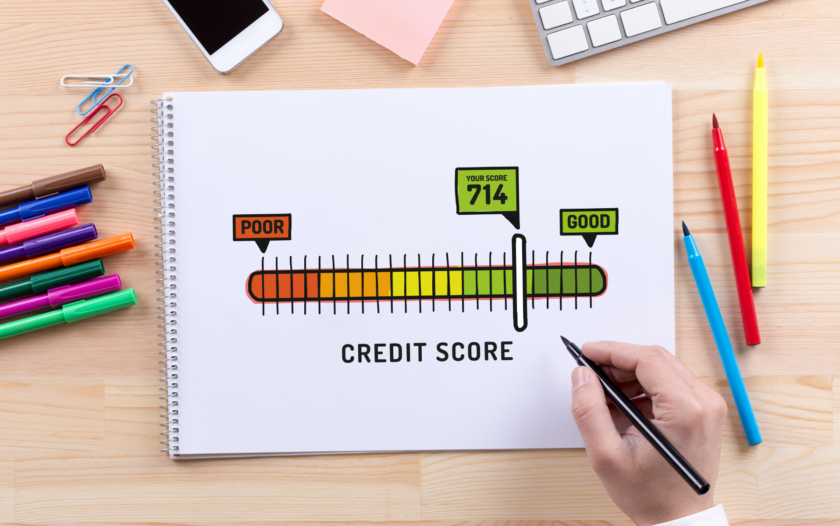Does Paying Off Old Debt Help Your Credit Score?
About Kevin
Kevin is a former fintech coach and financial services professional. When not on the golf course, he can be found traveling with his wife or spending time with their eight wonderful grandchildren and two cats.
Read full bio
At a Glance
Old unpaid debt, particularly if it’s in collections, can have a negative impact on your credit score. That’s reflected on your credit report. The effect of paying that debt off, however, is not as clear. It will improve your credit score eventually, but you may need to first do some work before the credit bureaus will register the payoff. Read on for the steps to make this happen.
1. Confirm Your Current FICO Score
Does paying off old debt increase your credit score? The only way to determine that is to know what your starting point is. Check your current FICO score through your credit card company or for free at any of the three major credit reporting agencies: Experian, TransUnion, and Equifax.
2. Understand Credit Score Ranges
Improving your credit score helps you the most when you can boost the number to the next credit score range. FICO scores can be anywhere from 300 to 850, with five basic ranges:
- Exceptional: 800-850
- Very Good: 740-799
- Good: 670-739
- Fair: 580-669
- Poor: 300-579
The average credit score for consumers with at least one collections account is 570. Those with delinquent accounts generally come in at 550 or below. Chances are, when you check your FICO score, you’ll be somewhere in that range. That falls under the range of poor credit.
3. Contact Collection Agencies
Your immediate goal should be to raise your credit score from the “Poor Credit” range to the “Fair Credit” range. This is realistic because it should only be a few points. Begin the process by contacting any collection agencies that hold your accounts. Don’t wait for settlement offers. Those may never come, and your score will go down every time you miss a payment.
If you’re not sure where those accounts are currently being held, go to FreeCreditReport.com and get a copy of your credit report. The collection agencies should be listed there. You’re entitled to a free report from all three credit bureaus once a year. Monitor them annually and consider this your first step towards eventually having “Good Credit” status.
4. Pay the Debt and Verify Your Payment
Paying the old debt is an obvious step. If you don’t have the funds to do that, consider applying for a debt consolidation loan. These are generally available for consumers with less-than-perfect credit, so don’t let your poor credit status prevent you from trying. If you’re refused, try working out a payment plan with the collection agency.
Next, verify your payment. Ask for a confirmation email or letter as evidence that the debt has been discharged. Remember, your goal is to answer the question, “Does paying off old debt help your credit score?” You won’t know if the payment never registers with the credit bureaus. Get some documentation to protect yourself if you need to dispute a credit report entry later on.
5. Check Your Credit Report for the Change
If you don’t see a FICO score change in thirty days, check your credit report again to make sure the payment to the collection agency registered. If the account still shows as being in collections, dispute the entry. This can be done in writing or online through one of the credit reporting websites if you have a paid account. Be prepared to send the documentation you collected when you verified the payment.
You might notice during this process that each credit reporting bureau displays a different credit score. There’s a difference between the credit scores they display and your FICO score. FICO has its own scoring formula that takes all three reports into account. The FICO score is the number you want to increase because most lenders use FICO to determine creditworthiness.
6. Does Paying Off Old Debt Increase Credit Score?
Once you’ve completed these steps, you can answer the question yourself. In some cases, you’ll see an improvement right away, but don’t be disappointed if you don’t. Your FICO score will come up eventually. Give it time. You’ll also be out from under the weight of collection calls and potential legal action. That makes paying off old debt a worthwhile endeavor.
Frequently Asked Questions
How long does it take for a credit score to go up after paying off debt?
Your credit score could change within a few weeks of paying off debt, but you can expect it to take up to ninety days. Credit card companies and lenders report on their own schedules and collection agencies may dispute with the credit reporting bureaus before they report paid debts.
Will paying off collections help my credit score?
Yes, it should. Be patient. Your score will go up if you pay off debt in collections, but it may take a while.
Related: How to Pay Off Debt in Collections









